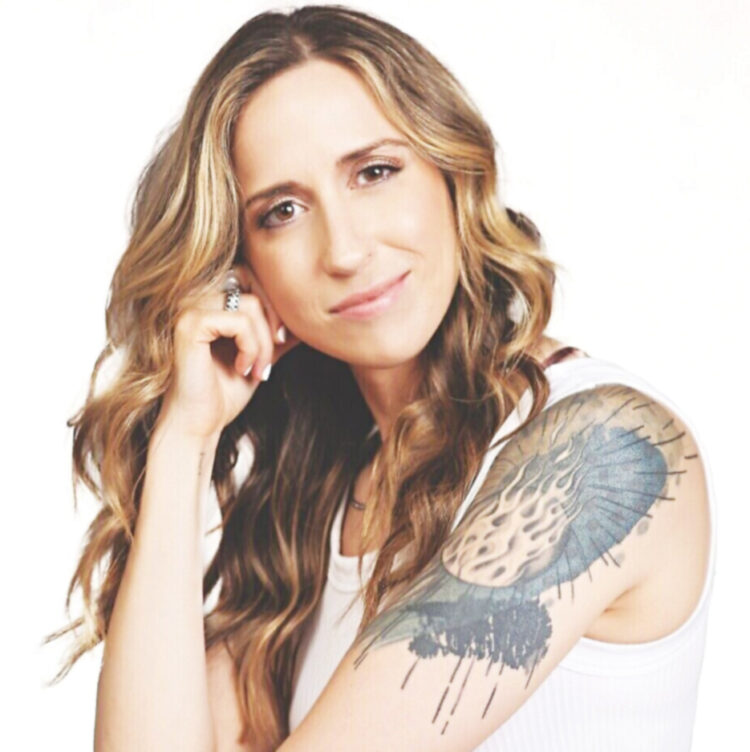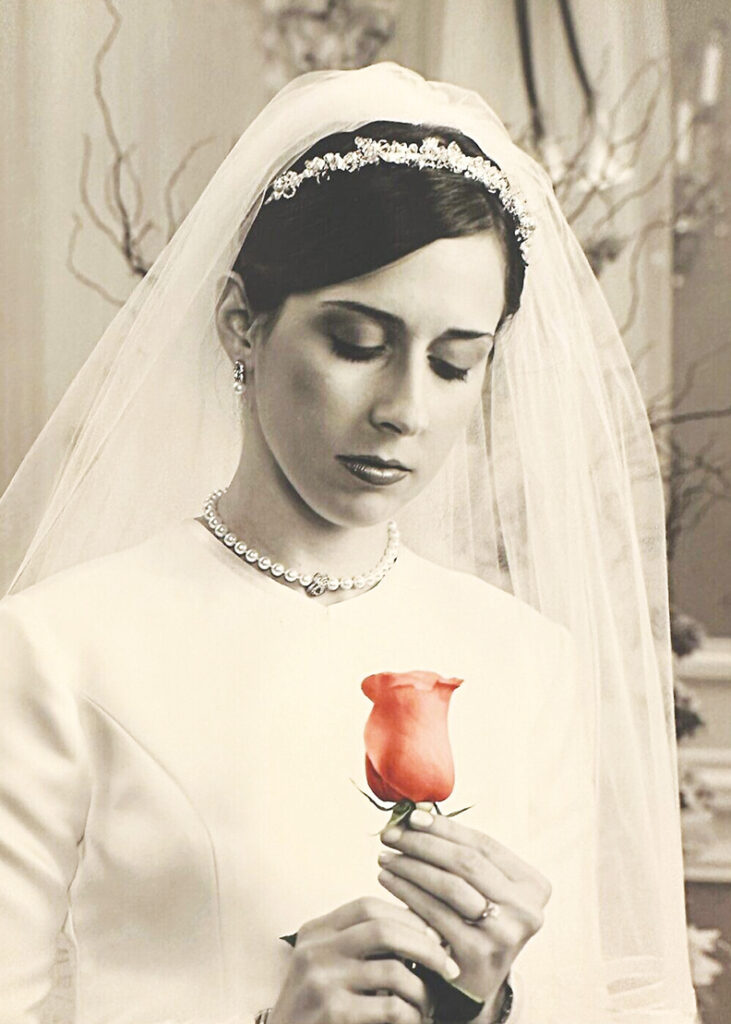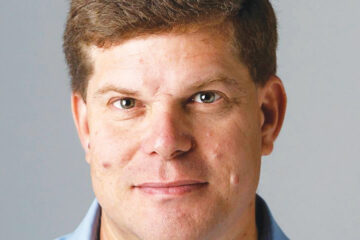Young, Chasidic, gay.

In her memoir, Sara Glass explains how she broke away to find her true self
By Charlotte Henry, Jewish News (United Kingdom)
Speaking to Dr. Sara Glass now, it is hard to believe she is the same person as the one at the start of her memoir, Kissing Girls on Shabbat. That Chasidic girl — and she was only a girl — endured her wedding night with a strictly Orthodox man she barely knew. She was young, frightened, and seemingly broken. Today, Sara is engaged and open, with long, sweeping blonde hair and tattoos.
The way she got to this point is a difficult read, a tale of deep love and profound loss, but Sara “wanted to tell this story because I know that this is still happening.”
By “this,” she means arranged marriages and young people hiding their sexuality and abuse.
Indeed, even the now out and proud qualified psychotherapist confesses to still having nerves about sharing her story detailing how a Chasidic woman came to terms with being gay and left her community and her family.
“For my entire life, any time I tried to be a version of myself that was more true, I lost people. I lost relationships,” she explains. “Now, I’m out of the closet, I live in Manhattan. Everyone knows I’m a lesbian. But the fear is still in my bones. And a part of me still thinks that when I say this extra detail, that’s when everything will come crashing down.”
Losing her relationship with her sisters seems to be what she finds most upsetting. The book reveals that “those were the people who raised me,” but they “live in a world where it’s not safe for them to have a queer sibling.”
Sara confides: “I really do miss them. A part of me still hopes they’ll read the book and that maybe they’ll call me or something and just say ‘we support you.’” Despite this loss, Sara confirms she doesn’t feel torn about her decision.
“I feel sad, I feel mournful, but I wouldn’t do it any differently.” It’s a striking sentiment and clearly, it’s taken a long time to get to this stage.
Most tragic of all, one of her sisters, Shani, suffered from bipolar disorder and took her own life. It was this experience, alongside her mother’s struggles with mental health, that inspired her future career even while she was still in her old life.
She had to negotiate continuing her studies with her husband, who says he may not have married her had she told him her plans.
Sara is still in touch with her brother-in-law and his children, but says she struggled to read the section of her book dealing with Shani’s death when recording her audiobook. She checks in periodically to see if anyone has been born or died and does have some contact with her father.
There will always be holdouts in the most stringent of Jewish religious communities, but is there any hope for the future that more gay girls and boys growing up in some Orthodox communities will not have to go through what she did?
“I do see some movement in the Orthodox community, especially in Modern Orthodoxy,” says the self-described optimist. She also outlines that the Conservative and Reform branches of Judaism are “already inviting me to lecture at their temples” about her book and says: “They’re so queer-friendly and inclusive.”
She rejects the idea that progress and acceptance is simply people going “woke.”
“Sometimes when people are afraid of change, they’ll throw change under a label like ‘woke’ and call that label bad. And that’s just a manifestation of fear.”

Sara tries to put her experience to practical use. She serves as the clinical supervisor for Jewish Queer Youth, an organization that has drop-in centers where those going through some of the issues she did can come to enjoy kosher pizza with others like them. Technology is changing things, too.
Sara herself did not watch television until she was 24 but believes the greater access to the Internet that is possible today can help those in even the most closed-off communities.
“The world can be underneath their mattress on a tiny, tiny screen connected to the neighbor’s Wi-Fi.”
Jewish religious teachings on homosexuality have not changed, though, and Sara believes that even if this pushes some out of the community, the strictly Orthodox “can survive because they procreate at such an astonishing rate.” However, she hopes “they will be compelled to shift their views.”
Despite her traumatic younger experiences, Sara has not renounced her Judaism. Her children go to what she describes as a pluralistic Jewish school and she still has Shabbat dinner in her home.
Speaking to the current version of Dr. Sara Glass, it’s hard not to be moved by both what she’s lost and what she’s gained. Most of all, though, you can’t help but worry how many versions of the girl in the opening chapter are still out there.
The JCC Cultural Arts & Book Series in partnership with the Greater Dayton LGBT Center and Jewish Family Services presents author Sara Glass via Zoom, 2 p.m., Sunday, Feb. 2. Register for the free program here.
To read the complete February 2025 Dayton Jewish Observer, click here.






